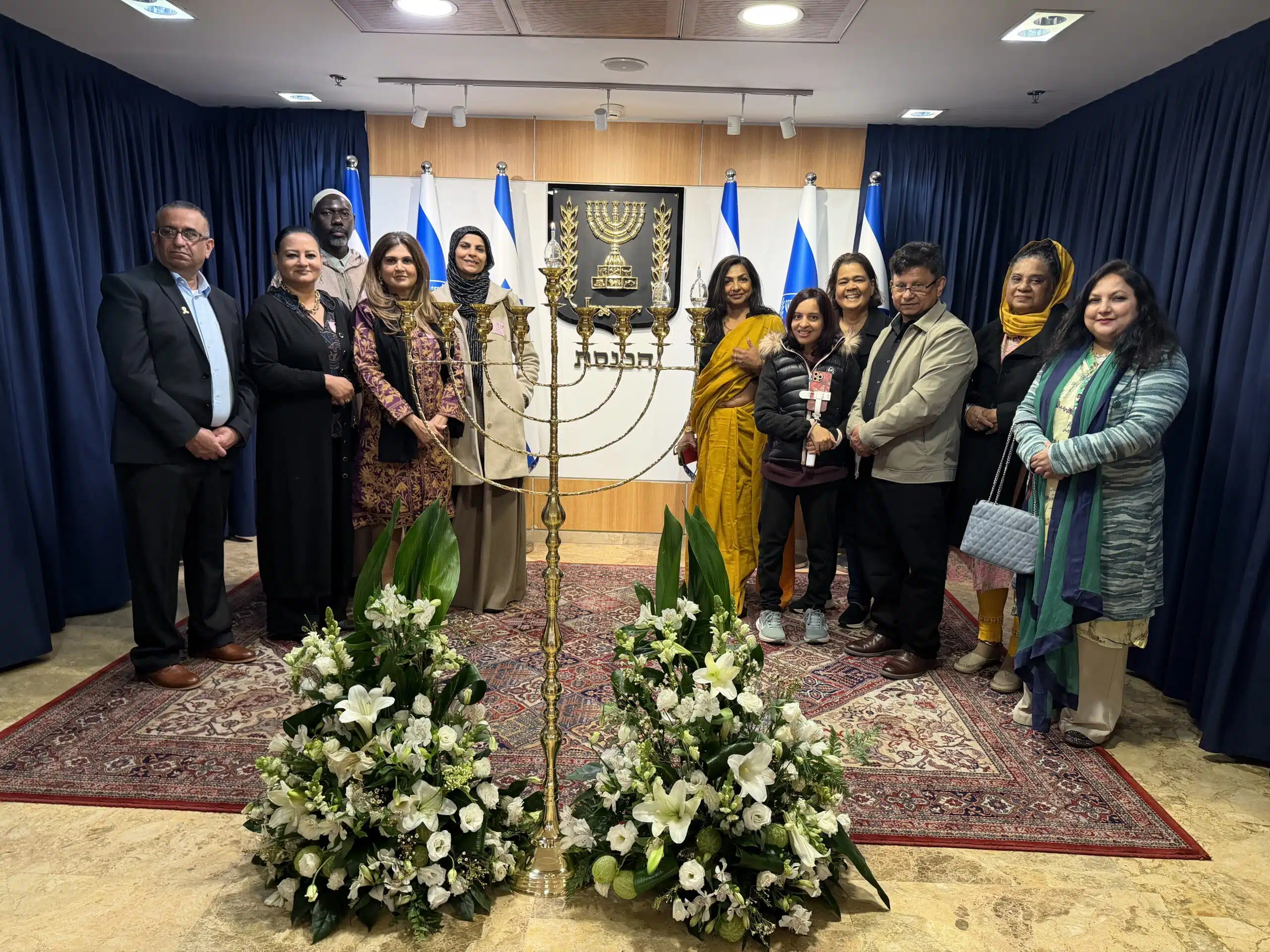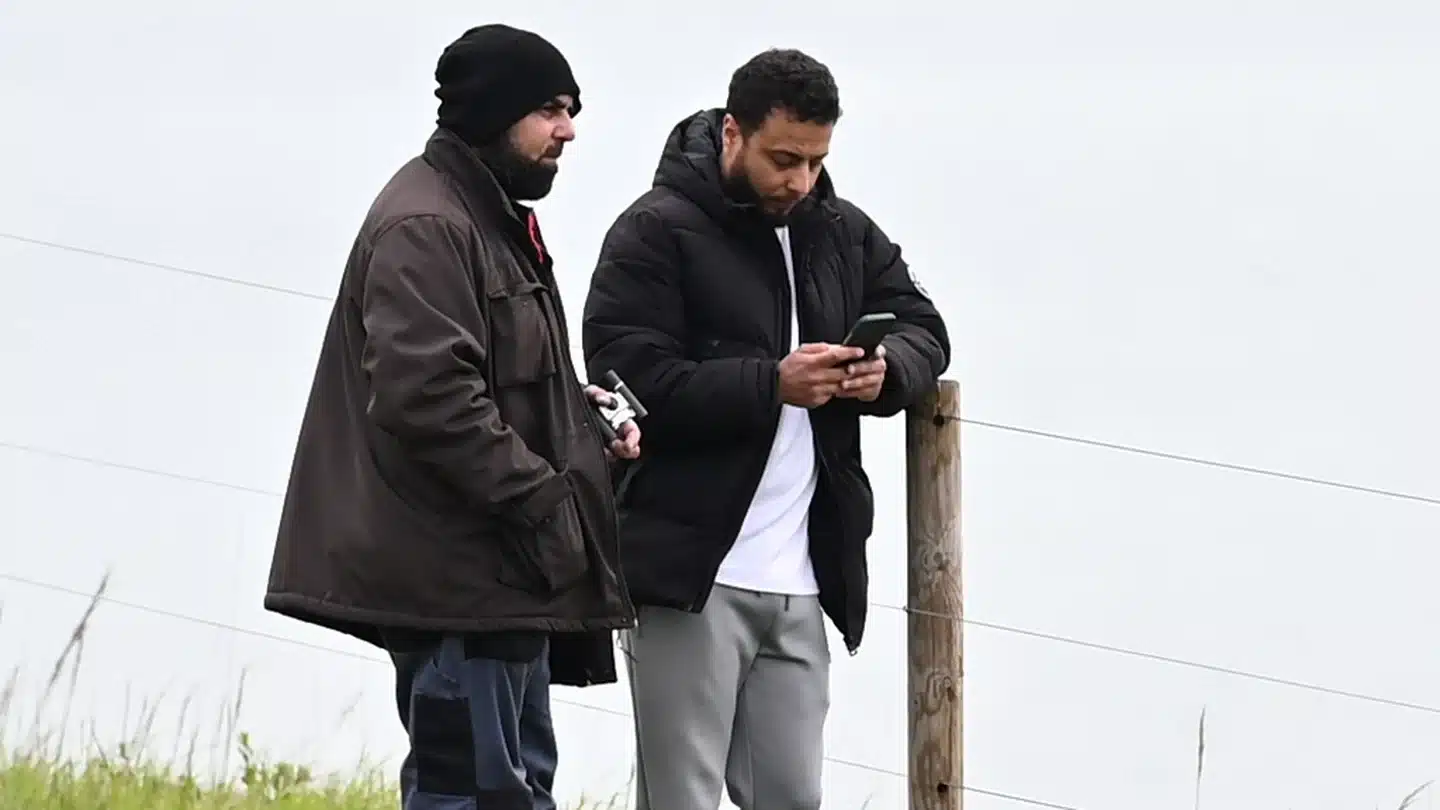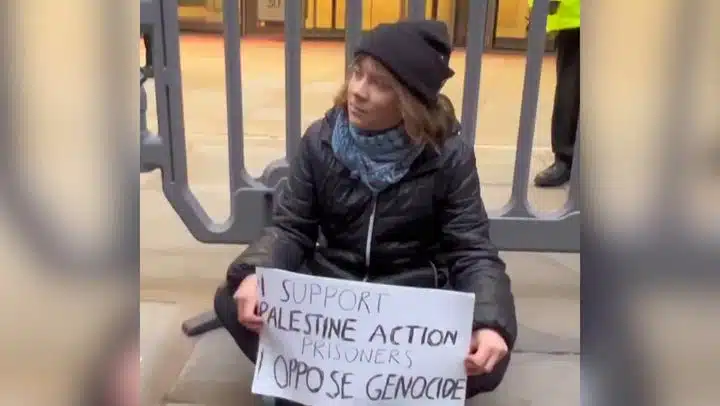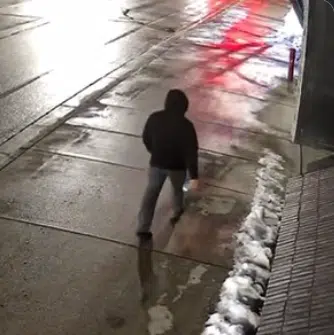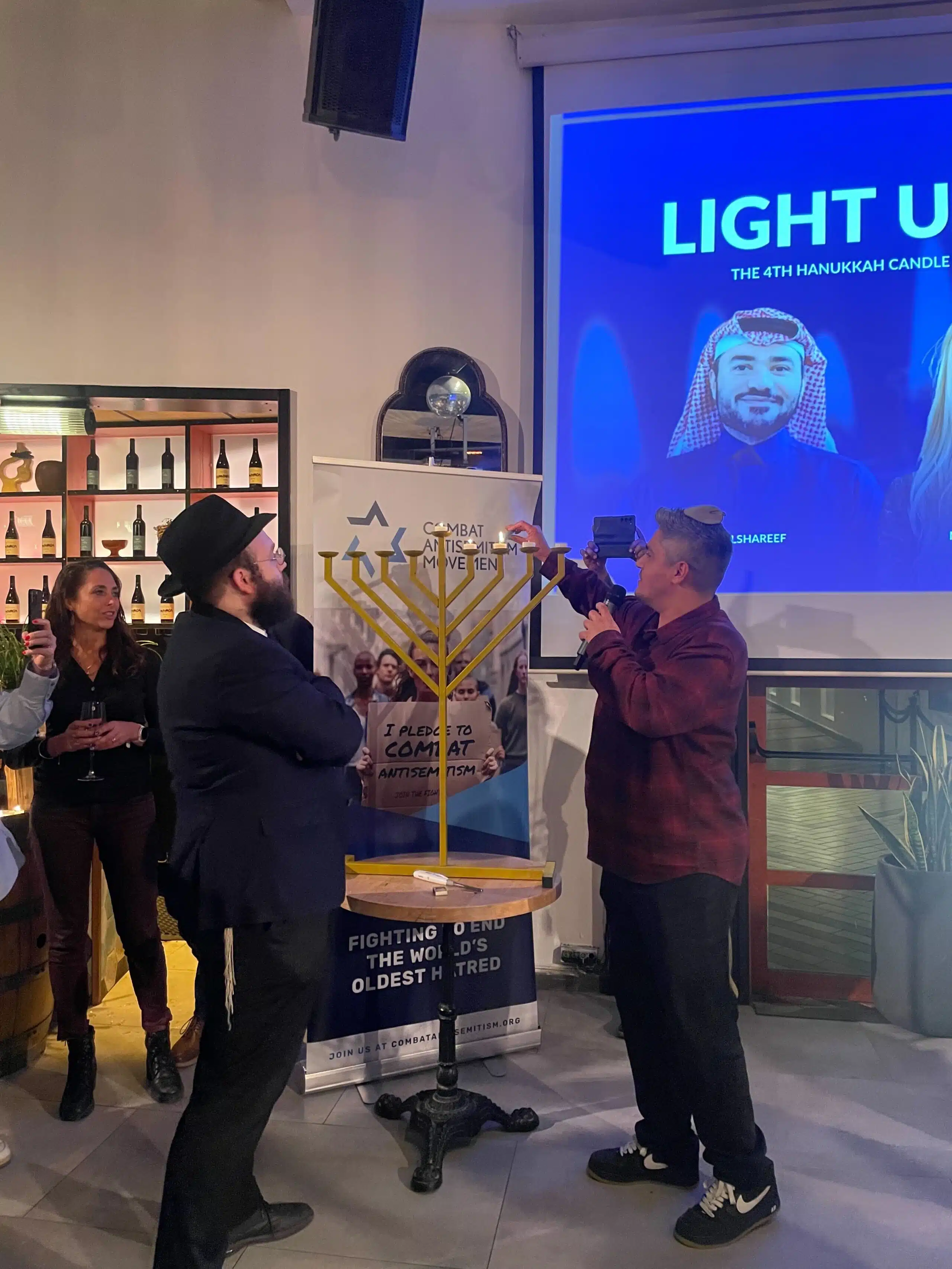
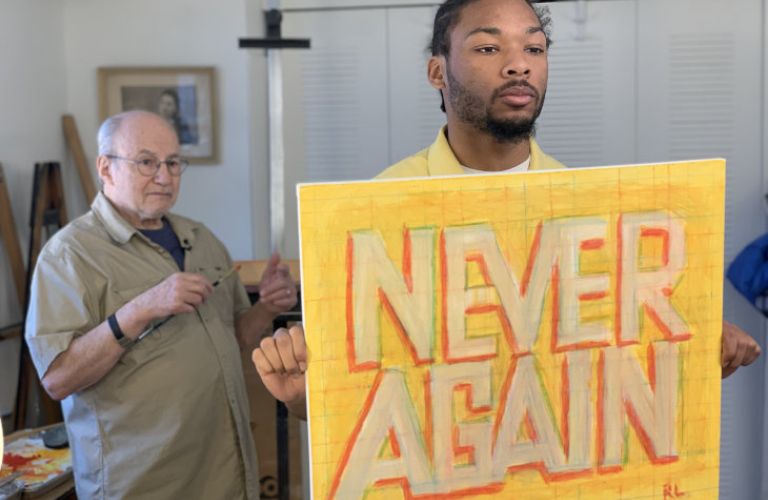
This Black Rapper From Detroit Is Spreading Holocaust Awareness With His Music
This article — authored by Faygie Holt — was originally published by Aish.
With soulful lyrics, Curtis Bates is educating the next gen about the evils of hate.
Like many young people his age, Curtis Bates didn’t know a lot about the Holocaust beyond what he’d learned in history class.
“We covered it for a little minute in school, in world history class in ninth grade,” he says. “I knew bits and pieces. Nothing pertaining to the real details of what occurred. I knew who Hitler was and I knew the Nazis and that they invaded Poland, but nothing more.”
Missing in that narrative is how the Nazis systematically exterminated millions of Jews, annihilating two thirds of European Jewry in a matter of years.
Bates, 20, an African-American college student from the West Side neighborhood of Detroit, is hoping to educate his peers and the next generation about the horrors of the Holocaust, the murder of six million Jews, the evils of Hitler and how a generation can be made to believe falsehoods spread through the media.

And he’s using his musical talents to do, thanks in part to his role in a new documentary, “Shoah Ambassadors.” The film follows two young adults, musician Bates and artist Hailey Callahan, as they learn about the horrors of the Holocaust through a series of meetings with survivors along with educational tours of the Zekelman Holocaust Center in Farmington Hills, Michigan and a virtual discussion with a representative from Yad Vashem: The World Holocaust Remembrance Center in Jerusalem.
“Picture This U Sittin In Yo Home Eatin Dinner
Some people kick down tha door and say they
takin U wit em They put U in tha ghetto the worst
living conditions …”
In the film the two work independently to share their knowledge with others through their art. Callahan created a stained-glass cattle car to illustrate the war machine the Nazis used to transport Jews to their deaths, while Bates wrote and performed three original rap songs that appear in the film.
“I was most surprised by how Hitler’s teachings were actually sold to his followers through propaganda and journalism,” says Bates, who is studying journalism at Wayne County Community College. “I didn’t understand how he was able to get such an army of people to commit such heinous acts. I don’t know how he justified it to them, but when it was explained to me” as part of the educational component of Shoah Ambassadors, “how Hitler controlled the media and the narrative, it made more sense, but it still shocked me.”
“A dark time in history that we’ll always remember
The man who orchestrated that plan was Adolf Hitler
He was a demon had to be tha closest thing to satan
Used propaganda on that Germans and became they dictator … ”
“Shoah Ambassadors” is the brainchild of documentary filmmaker Keith Famie, who had worked with Holocaust survivors in other films. Famie was dismayed when a story came up on his social media feed that claimed the Holocaust is “a made-up story.”
“To be honest, I was just irritated,” Famie, who is not Jewish, says. “I thought this is one of the stupidest things I ever heard. I was there, I walked in Auschwitz… Then I started asking some basic questions of young people, and sure enough they don’t know what the Holocaust is or what a concentration camp is or where it took place.”
Research backs up Famie’s assertion. According to a 2019 study by the Pew Research Center, more than half of U.S. teens polled could not say how many Jews died in the Holocaust or how Hitler rose to power. More recently, a study funded by a nonprofit group in Canada, found that a third of teens polled felt the Holocaust was either fabricated or exaggerated.
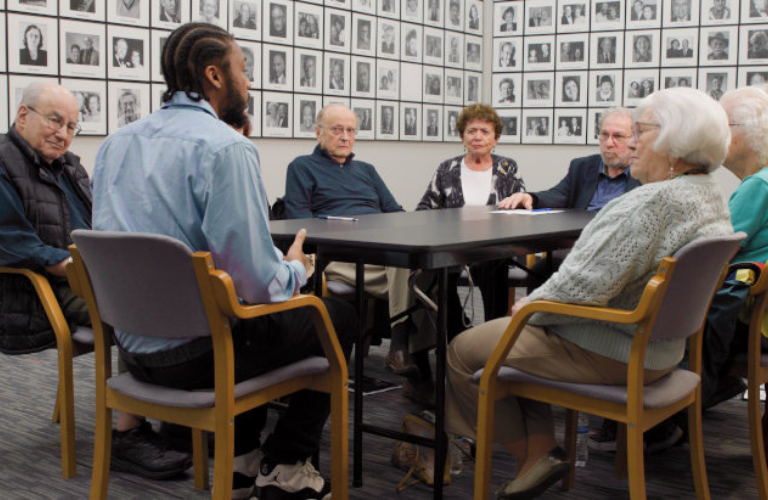
Determined to make a film that would speak to young, primarily non-Jewish teens, Famie took a film crew to cover a talk at the Zekelman Holocaust Center near Detroit by a Holocaust survivor. The audience? A group of about 100 high school students. “She was impactful,” he recalls, “but at the end of the day, they just didn’t get it.… The informational, generational gap was too wide, and I thought there had to be a better way to tell the story.”
He then hit on the idea of having young people go on a journey of discovery about the Holocaust with viewers coming along for the ride. When he met Bates, the director knew he’d found one of two of his ambassadors and tasked the young musician with creating the music that would frame the film, even though some in the Jewish community had reservations about telling the Holocaust through rap music.
For Bates, participation in Shoah Ambassadors gave him the opportunity to showcase his musical talents in a new arena. “I knew it would be a good opportunity to learn about the Holocaust and it would challenge my artistry — if I could pull off my vision of what Keith had in mind. I thought he had a good plan and a good vision, and I definitely wanted to help him carry that out.”
The filmmaker set out a few ground rules for the young rapper. There could be no profanity and the songs had to be “articulate and easy to hear the words, and they had to tell a story.”
He also gave the rapper the name for one of the songs, “Stolen Dreams.” With those parameters Bates got to work.
“With my songs and artistry, I always take a storytelling approach,” he explains. “This was a different story for me to tell, rather than a story from my life that I usually do, I had to find a way to apply that skill to tell a story that was taught to me at the Holocaust memorial center and by talking with the survivors.”
Hearing the survivors talk about their experiences “was like an out-of-body experience,” Bates says. “I didn’t know people from the Holocaust were still here and to hear their stories out of their own mouths.” “Stolen Dreams” was the first thing he recorded for the film and Famie calls it “brilliant.”
“When we cut that first piece of film with that song — a long time before the rest of the film was finished — it solidified any concerns the Jewish community had about a rap song in a Holocaust documentary,” says Famie. “Those that saw it, just sat back and said this is going to be amazing.”
Bates, though, wasn’t done wowing the director or viewers with his lyrical prose.
Rene Lichtman, one of Holocaust survivors featured in the documentary, is a painter and during the film he is shown creating a piece of artwork with the words “Never Again” on it. When he showed the final artwork to Bates, Lichtman challenged him to write a song called “Never Again.”
Bates was game to try it, and so was Famie. “We agreed that it should be a call to action against all forms of injustice,” recalls Bates. “Aside from it being a song about the Holocaust, it also a song about ending injustice across all people so young people will hear it and absorb and take the message, carrying it into real life.”
“6 Million lost souls gone and we can’t replace em
It’s time to address the problem now so everybody face em
We gotta end the hatred …”
After a few weeks, Bates played a few bars of his rendition of “Never Again” for Famie and he knew the ending of the documentary would need to be reworked to accommodate the song. He also engaged the Detroit Children’s Choir to sing it on screen with Bates.
Ironically, this is not the first time the phrase “Never Again” has been turned into a song about antisemitism and hate. In 1998, the hip-hop group Wu-Tang Clan released a song with the same title about the Holocaust.
Bates, who is a fan of the group’s work, was surprised to learn about the song, and said “it’s cool to know that artists I admire have used their creativity and platform to speak on serious subjects.”
“Music can succeed in telling any story because of the impact and influence it has on the culture and especially on young people,” says Bates. “Where I’m from music creates dialogue, sets trends, brings people together, separates them, and overall addresses the climate of what’s going on in the world.”
Young people, he continues, “are impressionable, learning more every day, and a part of the world that influences them is the art they consume.”
Which is why Bates’s music in “Shoah Ambassadors” might just bridge the gap between the young teens today and the Shoah survivors still in our midst.
“Shoah Ambassadors” bridges the chasm between Holocaust survivors who endured the nightmare of World War II and today’s bright-eyed, tech-savvy youths who may have only a limited grasp of what their elders suffered. Visit its website at: http://shoahambassadors.com
Watch the trailer for “Shoah Ambassadors” here:

